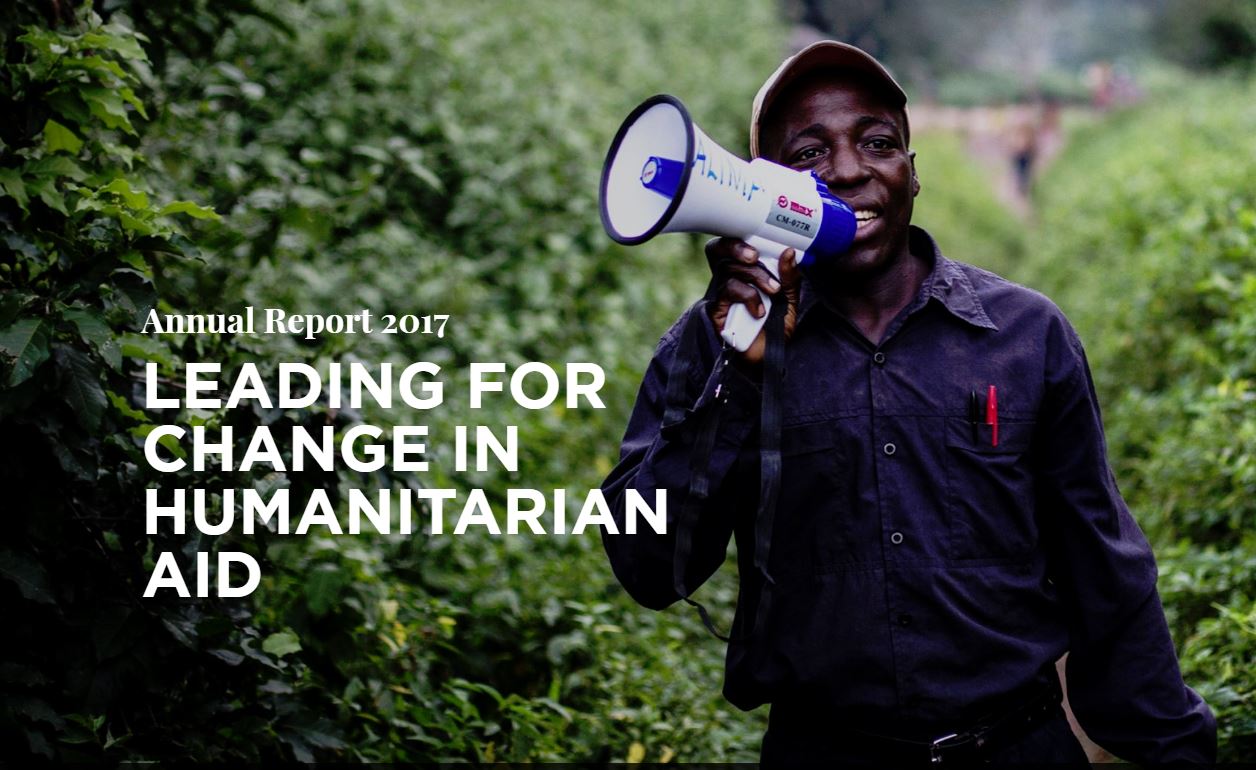Start Network has today published its first annual report showcasing its collective efforts to revolutionise the humanitarian aid system.
The report looks at the network’s theory of change, how its solutions are tackling problems in the global aid system, and how its efforts in 2017 worked towards achieving its revolutionary vision to create a global network of networks. Reporting on what the network achieved in 2017, the report covers three areas; localisation, new financing and collective innovation. Under each section the report discusses key achievements, ambitions going forward, case studies and key performance indicators, including:
-
Localisation: shifting power locally
18% of Start Network funding was directly distributed to southern and national organisations
Over 200 local and national organisations were involved in equitable partnerships
-
New financing: early, fast, collaborate and local
67 hours or less from crisis alert to funding award
100% of projects responding to crises were selected in the country or region where the crisis is
-
Collective innovation: innovating together to improve ways of working
9 locally based innovation labs were set up in 4 countries
9 early warning projects, including disaster risk financing and forecast-based financing projects, were created, tested or rolled out
In 2017 the Start Network’s own crisis response programmes (the Start Fund, Start Fund Bangladesh and the Migration Emergency Response Fund) responded to 87 crises, disbursing £13 million and helping more than 2.5 million people.
Sean Lowrie, Director of the Start Network said:
“Our achievements are significant but esoteric. What matters is that our efforts actually help people, and they do. In 2017 the Start Network responded in 87 emergencies in 38 countries. In addition to helping millions of people affected by those crises, our efforts have also helped make aid better for the people who deliver it. We hope you will read our annual report to hear from Akane Ujulu, a health worker in Gambella, Ethiopia; Zahara Ibrahim, a WASH officer in the Philippines; and other humanitarians in our network.”
Lola Gostelow, former Chair of the Start Network Board of Trustees (2017) said:
“This last year has emphasised the difference that we can make when the humanitarian sector works together. In 2017 we reached more than 2 and half million people affected by crises. That’s 2.5 million people who may otherwise have been overlooked. 2017 was a very busy year. Our achievements were possible because of the extraordinary collaborative power of those involved in Start Network. For that, I shout a sincere thank you to those people, all over the world.”
The report covers key milestones in 2017 including:
- The launch of the Migration Emergency Response Fund in January 2017; a rapid-response fund that targets growing and unforeseen spikes in need among refugees, migrants and other moving populations.
- February 2017 marked the launch of Start Fund Bangladesh; the first national Start Fund, putting funding and decision making into the hands of humanitarian groups closer to the communities most affected by disasters.
- The launch of the Disasters and Emergencies Preparedness Programme (DEPP) Learning Platform in May 2017, for projects across the DEPP to come together. The DEPP, which ended in March 2018, built national capacity for disasters and emergencies preparedness in 11 countries affected by crises.
- Start Evolves, a global process from May to November 2017, which co-designed the future of the Start Network. And as part of which, NGOs organised the Future of Humanitarian Action in Pakistan conference.
- The launch of the ARC Replica Programme in Senegal during July 2017, a ‘Replica’ drought parametric insurance policy intended to pay out if a drought hits Senegal, enabling aid agencies to offer live-saving help before a famine threatens to take people’s lives.
- The launch in October 2017 of DEPP Innovation Labs located in vulnerable communities in Bangladesh, Jordan, Kenya and Philippines with two out of the four labs led by national and local organisations.
Start Network is made up of more than 40 national and international aid agencies from five continents, whose aim is to change the global aid system, so it can save more lives. Through its programmes, the network aims to catalyse a wider shift in international humanitarian aid. In its Network Survey, 84% of Start Network members say organisational practices or approaches have changed as a result of interacting. While 78% of members say Start Network and its programmes are helping to bring systemic change to the humanitarian sector with the Start Network.

